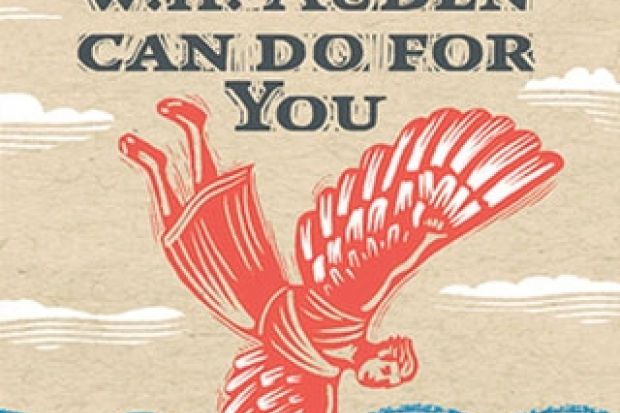This charming book is one I very much wanted to fall in love with; poetry can use all the passionate advocacy it can get from public figures as treasured as Alexander McCall Smith, and anything that demonstrates that poetry has effects and uses beyond the educational syllabus, in the lived habits and rituals of its readers, is welcome on my bookshelves. The intensity of McCall Smith’s love affair with W. H. Auden’s work is abundantly evident throughout this book, with its frequent emphasis on episodes of agape and eros, in which lived experience blurs with reading experience. He is not a deep reader of Auden, but he is a deeply feeling reader, alive to the finest moments in Auden’s verse-making (such as his unpacking of September 1, 1939), but not blinded to his weaknesses (such as the unjustifiable appropriations that the voice of Spain sometimes makes).
Yet something about this pocket-sized book prevented me from falling entirely in love with it. McCall Smith does not have space here for nuanced historical contextualisation, or for biographical criticism of Auden’s poems (nor is that his aim), yet the reader is sometimes offered gestures towards such a big picture that are just blunt enough to cause puzzlement rather than enlightenment. In Auden’s youth, “the English”, we are told, “were unwittingly cruel to their children, which is something the Italians, to think of one example, have never been”. Communism is explained as one of Europe’s many evils – almost on a par with fascism. Yet an attraction towards communism is understandable when one thinks of the feelings of rejection likely among the sexual nonconformists of interwar Britain. Auden went to Spain “because it was a central concern of the British literary left”. (It was, but surely that’s not the actual reason he went?)
Where this book comes alive is in the personal anecdotes and vignettes that McCall Smith sprinkles throughout: his discovery of a photographic manual of Trappist sign language in a second-hand bookshop in Toronto; an epiphanic summer’s evening at a reception in a 17th-century library in Perthshire; a dream of an Art Nouveau typesetting machine in a house on the machair of a Hebridean island. The sudden revelation, halfway through the book, that McCall Smith first began to read Auden around the same time he was conducting academic research into criminal responsibility in Belfast in the 1970s, and how the poet helped him think through the issues raised by that experience, is both fascinating and tantalisingly brief. Perhaps this might have been the starting point of a slightly different book, one that would subsequently narrate McCall Smith’s travels with Auden from that moment, rather than chronologically retrace some of the familiar facts of Auden’s biography.
One of the most moving of these anecdotes recounts how the Edinburgh-based author of No. 1 Ladies’ Detective Agency received a piece of fanmail from Edward Mendelson, Auden’s literary executor, an academic at Columbia University. The transatlantic friendship that blossomed resulted in Mendelson becoming a character in the former’s novels, and coming to Edinburgh to deliver first a fictional lecture on Auden and then, as reality modelled itself on art, an actual lecture. Poetry (pace Wystan Hugh) can make things happen. I was reminded too that I met one of my lifelong transatlantic friends through Auden on an revelatory summer’s evening. This, then, is one of the things poetry can do for us – it can be a thread leading us to new connections and helping us maintain and cultivate agape in our lives. I will gift this book to that friend. He may love it more than I do. And so the work of poetry is done in the world.
What W. H. Auden Can Do For You
By Alexander McCall Smith
Princeton University Press, 152pp, £13.95
ISBN 9780691144733
Published 16 October 2013





